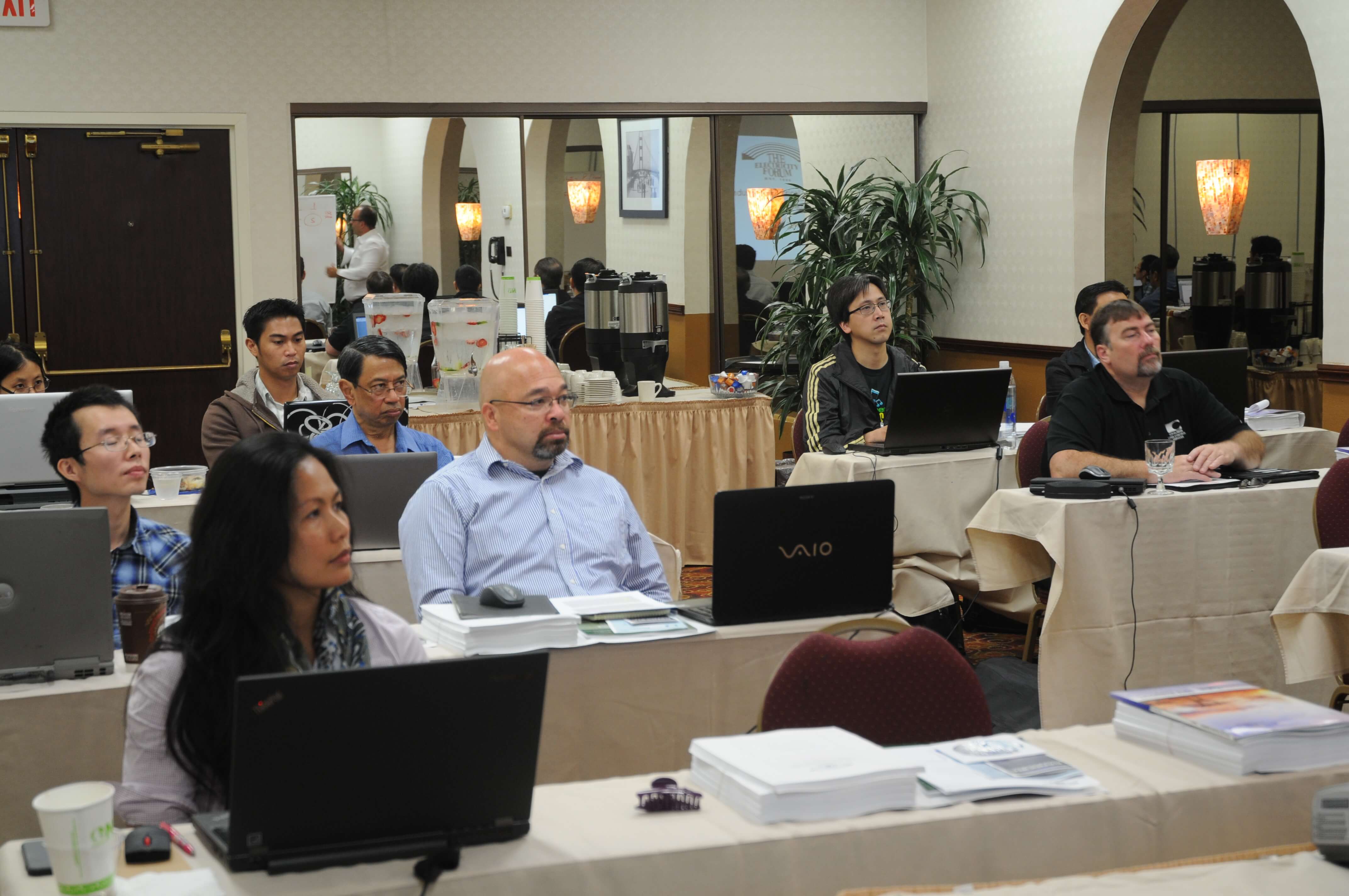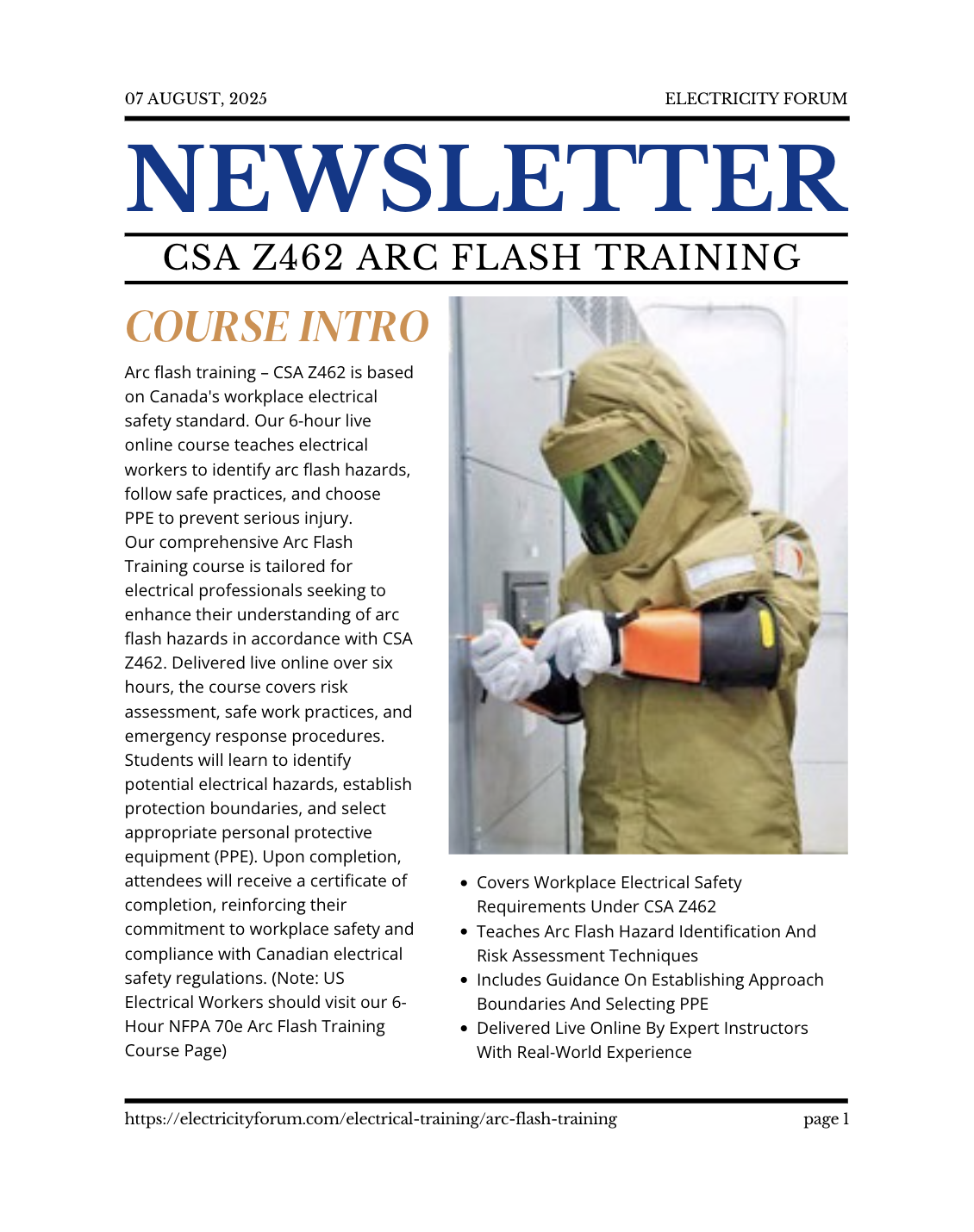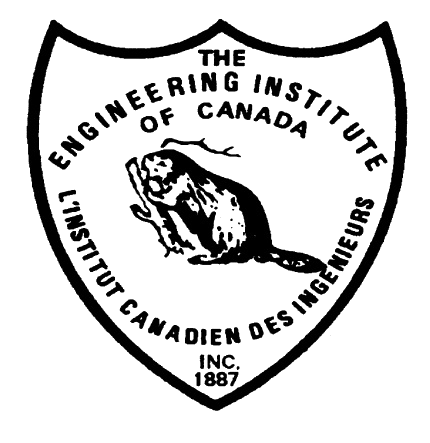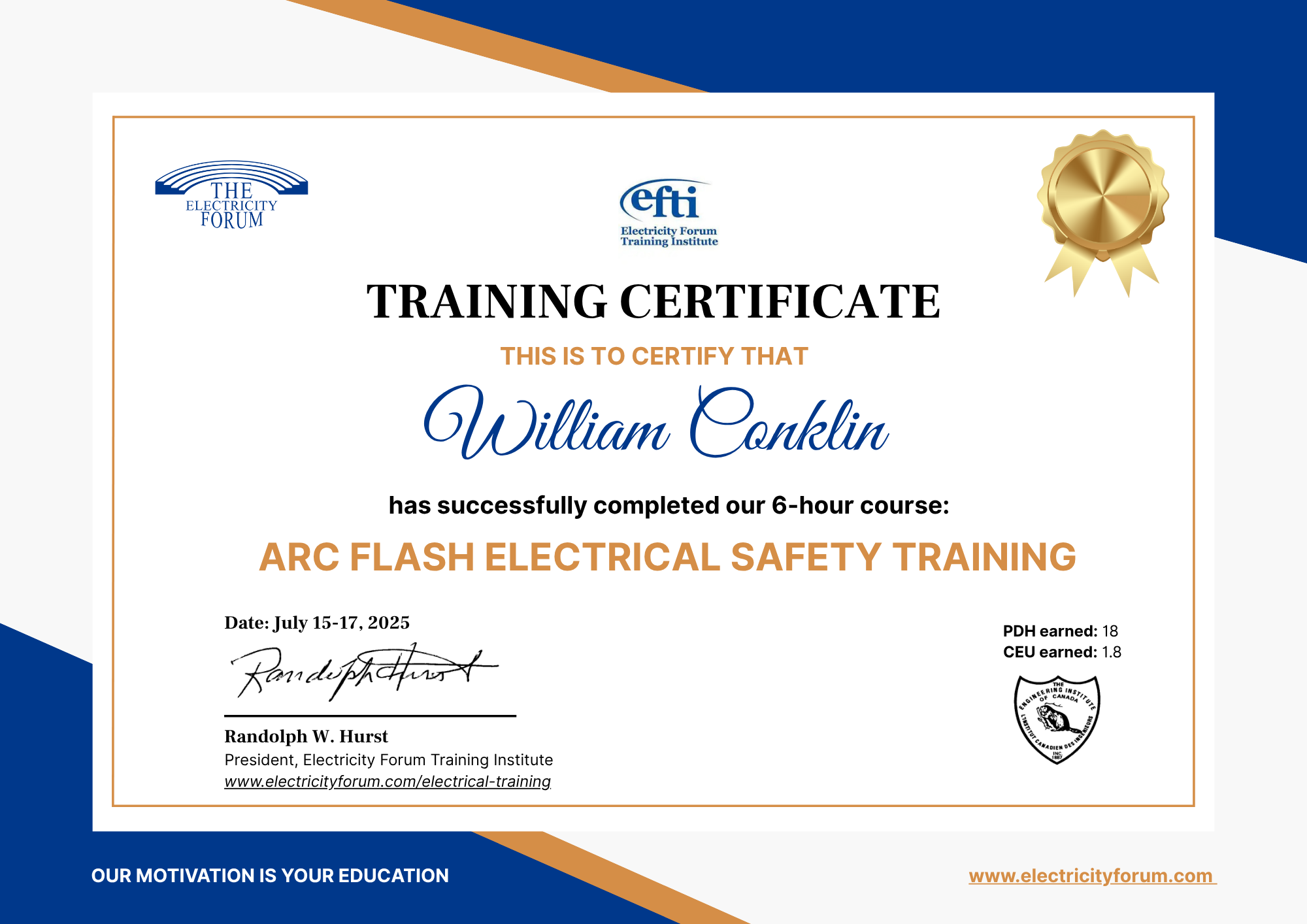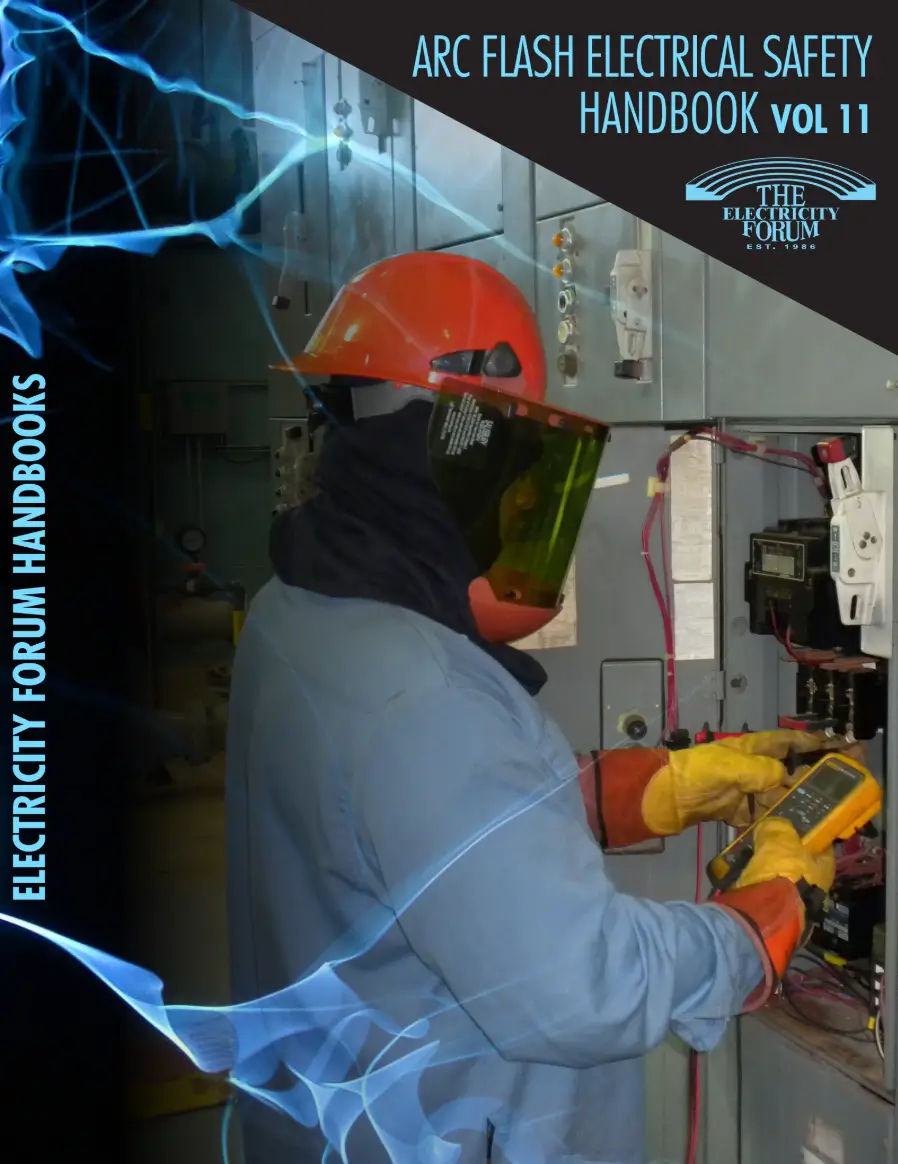Industrial Electricity Basics - Course Outline
DAY ONE
1: Basics of Industrial Power Systems
- AC and DC in Industrial Settings:
- Differences between AC and DC systems
- Applications of each in industrial environments
Electrical Basics:
- Voltage, Current, Resistance: Definitions and relationships
- Ohm's Law: Calculations and applications
Circuit Building:
- Simple, Series, Parallel, and Combination Circuits
- Using multimeters to measure voltage, current, and resistance
Safety Fundamentals:
- Verifying de-energization of circuits
- Identifying common failure modes: Open/short circuits, ground faults
2: Power and Power Systems
Electrical Power:
- Definition, calculation, and units of measurement
Single-Phase and Three-Phase Power:
- Understanding the differences
- Applications in industrial settings
Transformers:
- Purpose and basic operation
- Types of transformers used in industry
3: Test Equipment and Troubleshooting
Electrical Test Equipment:
- Multimeters, voltage testers, clamp-on ammeters, megohmmeters
Basic Troubleshooting:
- Reading electrical single-line diagrams
- Identifying branch circuit and control circuit problems
- Practical troubleshooting techniques (if time allows)
4: Low Voltage Power Distribution
Understanding Industrial Electrical Systems:
- Distribution systems: Overview of components and layout
- Low voltage system examples (100V, 208V, 600V)
Key Components:
- Power factor correction: Why it's important
- Transformers: Delta vs. Wye connections
- Automatic Transfer Switches (ATS): Purpose and operation
Electrical Protection:
- Low voltage fuse protection and circuit breakers
- Molded Case Circuit Breakers (MCCB)
- Electrical Protective Relays
- Introduction to Protection Schemes
DAY TWO
5: Advanced Power Distribution and Equipment
Industrial Electrical Systems (continued):
- Feeders, disconnects
- Motors, panelboards, and branch circuits
- Motor Control Centers (MCCs)
Emergency Backup Power:
- Backup electrical generators
- UPS systems and battery systems
Electrical Grounding and Bonding:
- Requirements for safety and operation
- Building Systems: (Brief overview)
- Building Automation Systems (BAS)
- Fire Protection Systems
6: Electrical Safety in Industry
NFPA 70E/CSA Z462: (Overview)
- Hazards of electricity: Shock, arc flash, arc blast
- Personal Protective Equipment (PPE)
- Lockout/Tagout (LOTO) procedures
- Safe work practices
7: Maintenance and NFPA 70B/CSA Z463
Electrical Maintenance Standards:
- Proactive vs. reactive maintenance
- Different maintenance strategies
- Link between maintenance and safety
- General practices (e.g., insulation testing)
- Specialized equipment maintenance
COURSE SCHEDULE
Both Days:
Start: 10:00 am - Eastern Time
Finish: 4:30 pm - Eastern Time






